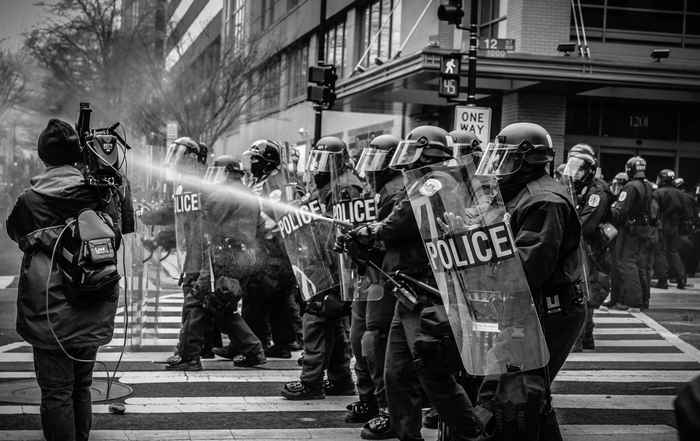Professor of Political Science Adam Przeworski famously argued that democracy is a peaceful method of processing conflict. It is true that democratic institutions succeed in constraining incumbents from engaging in the worst excesses; large-scale violence such as genocide, ethnic cleansing, repression, or civil war are much less common in democratic regimes.

Studying the most serious forms of violence is important. But political violence in democracies is understudied in comparison, even though it remains surprisingly common, if on a lower scale. For example, violence against immigrants and other minorities happens routinely in democracies in the Global North and South. Similarly, concerns about violence against voters, political candidates and election officials have increased in recent years, even in wealthy democracies such as the United States.
Finally, terrorism continues to affect democracies more than any other type of regime. Scholarship on political polarization, radical parties, hate crimes, electoral violence, ethnic violence, and terrorism has studied violent tendencies in democracies; but often in isolation and without problematizing their persistence in democratic contexts.
What explains the puzzling persistence of violence in democracies?
This workshop challenges prevailing prescriptive views on the incompatibility of violence and democracy, suggesting instead that democratic competition can create rather than curb incentives for some forms of violence. Citizens may abhor violence in principle and condemn it in the abstract, but even in democracies, voters are rarely willing or able to punish co-partisans or co-ethnics who sponsor or support violence.
Moreover, in light of the success of radical right and ethnonationalist parties in democracies around the world, it seems that political elites can benefit from condoning or inciting violence rather than be punished for it. Violence in democracies also seems to manifest differently from more intense forms; for example, it often requires the construction of narratives that displace blame to legitimize violence.
The persistence of violence also raises challenging questions for democratic theory; is it possible to organise the democratic polity in ways that limits electoral gains from violent rhetoric and acts of violence, or are these incentives inevitably embedded into democratic institutions? We currently lack analytical and explanatory frameworks for understanding these dynamics, which we aim to develop in this workshop.
The puzzle of political violence in democracies is the central theme of this workshop. Contributions are welcome on routine forms of violence that persist, despite decades of experience with democratic politics. Papers around the following themes can be submitted:
- Citizen support for, or opposition to, violence.
- Elite motives for violence in democracies.
- Institutional design and its impact for violence.
- The construction of narratives to help legitimise or legalise violence.
- The cleavages of violence and their relation to electoral competition.
Interested colleagues are invited to submit extended abstracts: 2 pages, including a proposed research design, pre-analysis plans, or full papers.
The deadline for submissions is September 29, 2023.
Selected papers will be announced approximately two weeks after the deadline; one author for each selected paper will be invited to attend a two-day, in-person workshop at the University of Amsterdam in February 2024. Travel and hotel costs will be covered for invited participants. Participants are expected to read all papers ahead of the workshop.
Following the workshop, selected papers may be invited for a special issue proposal to a journal such as Journal of Peace Research. Please note that the acceptance to the workshop does not mean selection for the special issue proposal. We also ask authors to indicate if they do not wish to be considered for the special issue.
Organizers
Ursula Daxecker, Neeraj Prasad (University of Amsterdam) & Andrea Ruggeri (University of Oxford).






